Premium Only Content
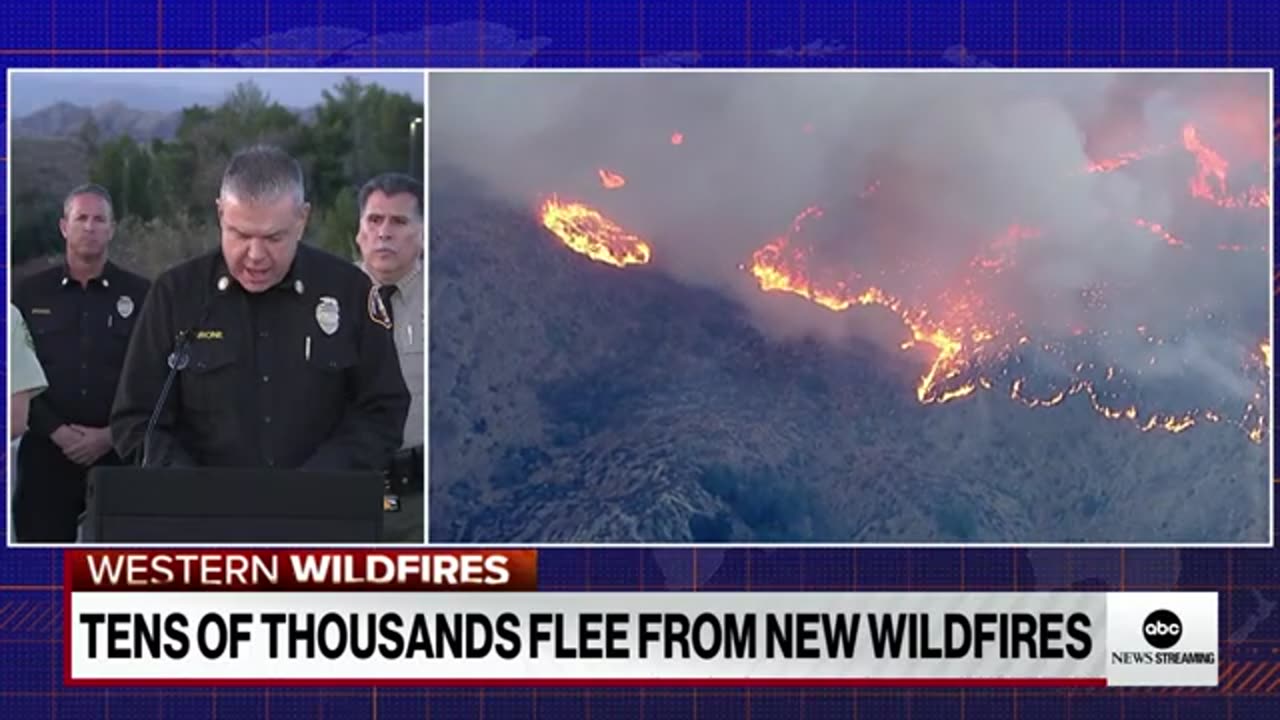
Trump's DEI, border exec. orders; New LA wildfires; Jan 6th. rioter on pardon
Exploring Key Issues: Trump's Executive Orders on DEI and Border Security, Recent LA Wildfires, and the January 6th Rioter Pardon
In the complex landscape of American politics and society, various events and initiatives have profound ramifications on the nation's fabric. This analysis delves into several pivotal topics: Donald Trump's executive orders related to Diversity, Equity, and Inclusion (DEI) and border security, the recent wildfires in Los Angeles, and the implications of a pardon for individuals involved in the January 6th insurrection. Each of these subjects reflects the intersecting nature of policy, environmental issues, and the rule of law in contemporary Amer
Trump's Executive Orders on DEI
In 2020, then-President Donald Trump issued a series of executive orders that significantly impacted policies around Diversity, Equity, and Inclusion (DEI) within federal agencies and contractors. These orders were largely seen as a response to the growing calls for systemic change in the wake of widespread protests against racial injustices, particularly following the murder of George Floyd. Trump's orders prohibited the distribution of what he referred to as "divisive concepts" in workplace training programs, stalling many initiatives aimed at addressing systemic racism and fostering inclusive environments.
The Rationale Behind the Orders
Trump’s rationale revolved around the belief that such training programs promoted a divisive ideology that viewed the United States as intrinsically oppressive. He argued that taxpayer dollars should not be used to foster what he characterized as 'critical race theory' within federal institutions. This positioned his administration as a proponent of "patriotic education," asserting that a unified national identity should eclipse discussions of race and historical grievance.
Impacts of the Orders
The immediate impacts of these orders were multifaceted. Federal agencies and contractors faced a sudden halt to DEI training programs, prompting a significant reevaluation of workplace policies. Some organizations undertook rapid compliance efforts to fall in line with the new laws, while others resisted, arguing that the initiatives were necessary to foster underrepresented groups and address disparities in the workplace.
The corporate sector also felt repercussions, as organizations seeking federal contracts had to navigate the delicate balance between adhering to Trump's mandates and striving to implement their own diversity initiatives. Many businesses found themselves under scrutiny, as stakeholders increasingly demanded accountability in terms of representation and equity within corporate structures.
Moreover, the executive orders sparked numerous legal challenges, drawing the attention of civil rights organizations that argued the measures inhibited free speech and restricted vital discussions around race and equity in the workplace. The political polarization surrounding these initiatives galvanized supporters and detractors alike, leading to intense public discourse on the relevance and necessity of DEI efforts.
The Enduring Legacy
The impact of Trump’s anti-DEI orders is still being debated. Post-presidency, the conversation around diversity and inclusion within governmental policies continues to evolve. The incoming administration's approach to these issues remains crucial in shaping the future of DEI initiatives across both public and private sectors.
Trump's Border Executive Orders
Trump's presidency was marked by a staunch focus on border security, leading to a series of executive orders aimed at curtailing illegal immigration, detaining undocumented migrants, and constructing barriers along the U.S.-Mexico border. His administration’s policies were characterized by an "America First" mantra that resonated with a significant portion of the electorate concerned about immigration’s socioeconomic implications.
Key Initiatives
1. The Border Wall Construction: One of Trump's signature pledges was the construction of a physical wall along the southern border. This project faced numerous bureaucratic and financial challenges, including opposition from various states and organizations. Despite these hurdles, Trump's administration managed to allocate funds and construct sections of the wall, but the efficacy and necessity of the barrier have been subjects of heated debate.
2. Family Separation Policy: Perhaps the most controversial aspect of Trump's border enforcement was the "Zero Tolerance" policy, which led to the separation of thousands of migrant children from their families. The implementation of this policy drew outrage domestically and internationally, sparking legal challenges and campaigns for reform as it became clear that many of these families would face long, painful separations.
3. DACA and Immigration Reform: Trump's approach to the Deferred Action for Childhood Arrivals (DACA) program was marked by efforts to rescind it, leading to a protracted legal battle that reached the Supreme Court. This case highlighted the tension between executive authority and judicial oversight in immigration policy, underscoring the precarious state of work and residency for thousands of young immigrants who entered the United States as children.
4. Travel Bans: Trump's presidency was also marked by travel bans targeting specific countries, particularly those with predominantly Muslim populations. These bans faced extensive legal challenges and were perceived as discriminatory, prompting discussions on the values of inclusivity and religious freedom underlying American immigration laws.
The Long-Term Consequences
The implications of Trump's border policies continue to reverberate throughout the immigration system. The legal and humanitarian crises stemming from the family separation policy, for example, have had lasting effects on affected families, as many continue to navigate the complexities of legal status and emotional trauma. Public opinion also shifted in response to these policies, with many Americans expressing increased support for comprehensive immigration reform and a more humane approach to migrants seeking asylum and opportunities in the United States.
Recent Wildfires in Los Angeles
Transitioning to environmental issues, Los Angeles has faced a growing frequency and intensity of wildfires, which serve as a stark reminder of the challenges posed by climate change. California's landscape, coupled with prolonged periods of drought and increasingly severe heat waves, has created a perfect storm for wildfires to flourish.
Causes and Effects
The 2023 wildfire season was particularly devastating, exacerbated by climate-induced conditions. High temperatures, low humidity, and strong winds contributed to the rapid spread of flames, leading to the evacuation of thousands and the destruction of homes, wildlife habitats, and infrastructure. As fires raged, first responders faced immense challenges in battle against the flames, often stretching resources to their limits.
The ecological repercussions of these wildfires extend beyond immediate devastation. The destruction of forests impacts carbon sequestration, biodiversity, and water quality, all of which have long-term consequences for the environment and public health. Additionally, the economic effects of wildfires can be felt deeply; the insurance claims from fire damage can cripple communities, particularly those already struggling to recover from previous disasters.
Community Resilience and Response
In the face of such calamities, community resilience has been tested. Local organizations, firefighters, and volunteers banded together to provide support for evacuated families and assist in rebuilding efforts. Increased advocacy for better forest management, preventative measures, and government support for affected residents has emerged as a priority, spurring discussions on funding allocations for fire mitigation strategies and emergency preparedness.
Long-term, these events underscore the pressing need for comprehensive climate policy, as scientists warn that without significant global actions to combat climate change, similar disasters will only become more frequent and severe. The dialogue surrounding the intersection of environmental policy, infrastructure investment, and community resilience is increasingly urgent as the frequency and intensity of wildfires loom over California's future.
January 6th Rioters and the Pardon Debate
The January 6, 2021, insurrection at the U.S. Capitol marked a pivotal moment in American history, provoking intense scrutiny of political accountability and the rule of law. Many individuals who participated in the riots were charged with a range of crimes, leading to a national conversation about justice, punishment, and the potential for pardons from political figures.
The Events of January 6th
On that fateful day, thousands of individuals stormed the Capitol in an effort to overturn the certification of the 2020 presidential election results. The violent breach resulted in multiple deaths, injuries to law enforcement, and significant property damage. The aftermath prompted widespread condemnation from various political leaders and a bipartisan push for accountability against those who instigated or participated in the insurrection.
Legal Consequences
Following the events, numerous rioters faced felony charges, with many receiving sentences ranging from probation to years in prison. The legal ramifications for participants in the insurrection have sparked a broader debate on justice, public safety, and the implications of political rhetoric. Supporters of justice for the January 6th rioters argue that accountability is essential to deter future violence, while detractors emphasize concerns regarding the politics of punishment and the potential for disproportionate sentencing.
Pardon Possibilities
Amid this backdrop, discussions surfaced about the potential for pardons, particularly from Trump himself. Such an action would carry significant implications. On one hand, pardon advocates argue for clemency, citing the influence of political fervor and frustration with the electoral process as motivations for participation in the insurrection. On the other hand, critics warn that pardoning these individuals could send a signal of tacit endorsement for extremist behaviors and undermine the rule of law.
The prospect of pardons has reinvigorated discussions about the moral and legal obligations of leaders to protect democratic institutions and uphold the rule of law. Critics fear that an exercise of clemency could normalize violence against democratic processes, eroding the foundational aspects of American governance.
In summary, the intertwined nature of Trump's executive actions on DEI and border security, the environmental challenges posed by Los Angeles wildfires, and the contentious discourse surrounding January 6th pardons reflect the complexities of contemporary American society. Each issue is emblematic of broader debates regarding equity, justice, environmental stewardship, and the preservation of democracy.
The legacy of Trump's administration continues to shape discussions on policy, governance, and community values, while the events of January 6th have laid bare the fragility of American democracy. As the nation grapples with these challenges, vigilance, engagement, and a commitment to democratic ideals will be essential in navigating the uncharted waters of a rapidly changing landscape. Collectively, these discussions underscore the importance of recognizing the interconnectedness of social, environmental, and political issues, advocating for a future that embraces equity, sustainability, and justice for all.
-
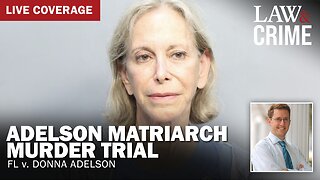 LIVE
LIVE
Law&Crime
1 hour agoLIVE: Adelson Matriarch Murder Trial — FL v. Donna Adelson — Day 3
103 watching -
 1:15:15
1:15:15
JULIE GREEN MINISTRIES
3 hours agoTHE CIA HAS BEEN A GIANT IN THIS LAND THAT WILL BE TAKEN OUT
67.7K109 -
 LIVE
LIVE
The Bubba Army
23 hours agoBURN The FLAG, Go to JAIL! - Bubba the Love Sponge® Show | 8/26/25
1,955 watching -
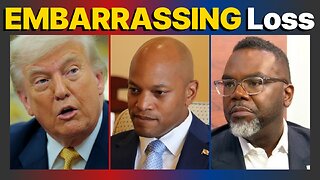 29:45
29:45
DeVory Darkins
17 hours ago $7.39 earnedDemocrat Governor suffers EMBARRASSING LOSS to Trump as ICE takes Garcia into custody
27.1K70 -
 LIVE
LIVE
JuicyJohns
1 hour ago $0.23 earned🟢#1 REBIRTH PLAYER 10.2+ KD🟢
98 watching -
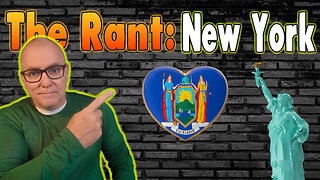 18:22
18:22
World2Briggs
21 hours ago $2.99 earnedThe New York Rant: Point Blank With No Fluff or BS. A Warning
19.3K7 -
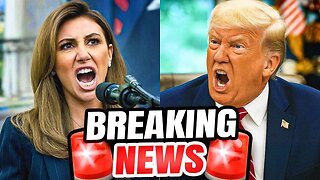 42:52
42:52
The Finance Hub
15 hours ago $4.23 earnedBREAKING: ALINA HABBA JUST SHOCKED THE WORLD!
22.7K34 -
 2:00:44
2:00:44
BEK TV
1 day agoTrent Loos in the Morning - 8/26/2025
23K -
 12:15
12:15
Nikko Ortiz
19 hours agoMonday Gun Fails
82.3K18 -
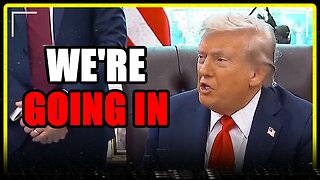 8:19
8:19
MattMorseTV
18 hours ago $12.78 earnedTrump is ACTUALLY DOING IT.
76.5K55